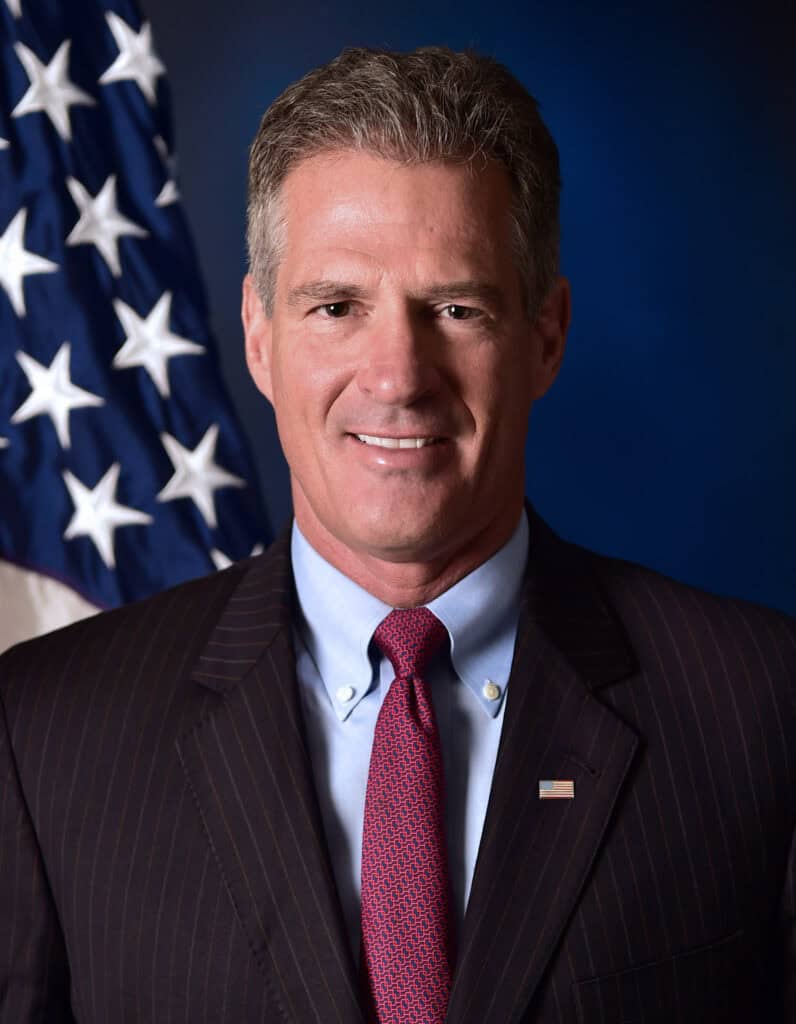These days, it’s hard to turn on a television or open a newspaper without running into a fawning profile of Lina Khan, the embattled chair of the Federal Trade Commission (FTC). From 60 Minutes to the New York Times to Bloomberg, the legacy media just can’t get enough. With Khan’s term at the FTC technically expired (although she can stay on indefinitely until replaced), speculation is rampant about her next move. The most recent thumb sucker included a suggestion from one observer that Khan has set her sights on higher goals — perhaps even the Supreme Court.
It may sound laughable to put someone with such extreme views on our highest court, but don’t dismiss the idea too easily. Unlike other members of today’s progressive left, Khan softens the edges of her extreme ideas underneath a less threatening veneer. Her words don’t sound like they came from a Soviet manifesto, even if her ideas do.
At the core of Khan’s ideology, as well as that of her partner in crime, the Department of Justice’s (DOJ) Assistant Attorney General for Antitrust, Jonathan Kanter, is the idea that successful companies that grow beyond an arbitrary size automatically warrant intense scrutiny and even intervention from regulators. In Khan and Kanter’s eyes, success is not the result of innovation, hard work and ingenuity, but somehow comes from bending — or even breaking — the rules.
It’s the antithesis of the mentality that made America the global superpower we are today.
Worst of all, nowhere in Khan and Kanter’s line of sight is the benefit of the consumer. Consider their actions of late.
Khan’s FTC continues its war against Amazon in the form of a landmark lawsuit. This week, a federal judge ruled that the bulk of the case could move forward. Of course, Khan rose to prominence as an avowed critic of the online marketplace. Its break up has been her north star, dating all the way back to her days as a student at Yale Law School.
Not only is she hopelessly compromised, but she has no regard for the benefits Amazon provides. This week, 180 million Prime customers got a jump on their holiday shopping with a two-day Big Deal sale with deep, across-the-board, discounts. With Americans still being hammered by high prices and consumer confidence at a three-year low, every little bit counts — but Khan doesn’t care.
Or take Kanter’s obsession with breaking up Google. The Assistant AG could hardly hide his glee when a judge ruled the search engine a monopoly. Describing himself as “overjoyed,” Kanter even bragged the case belonged on the Mt. Rushmore of antitrust. Some hubris.
This week, a judge signaled some of the early remediation efforts from this could include spinning off popular features like Chrome or Android. Meanwhile, as the American government puts its boot on the throat of our biggest success stories, Communist China continues to outpace us in the battle for dominance in artificial intelligence.
Khan and Kanter’s hit list doesn’t stop there. They blocked a proposed merger between JetBlue and Spirit Airlines that led to fewer flights and even a potential bankruptcy. They filed a meritless lawsuit against Visa, despite growing competition in the debit market that has fueled increasing consumer benefits and research on AI, cryptocurrency, fraud prevention, network security.
Of course, it should be lost on no one that the uptick of activity comes a few weeks before an election that will result in a new president. Mark Cuban, a prominent Harris supporter, made headlines this week when he urged the Vice President in the Washington Reporter to “move on” from Khan. The comment earned the Dallas Mavericks owner sharp rebukes from both Sen. Bernie Sanders (I., Vt.) and Rep. Alexandria Ocasio-Cortez (D., N.Y.), the latter of whom pledged an “all out brawl” if Khan gets axed from her role — so much for President Joe Biden’s pledge to restore civility in politics.
Thankfully, conservative voices have started applying scrutiny back on Khan — House Oversight Chairman, Rep. James Comer (R., Ky.) even launched an investigation into her politicization of what should be a nonpartisan agency.
Regardless of the outcome of the November election, Lina Khan is poised to remain a figure of national prominence for years to come. It’s incumbent on everyone who values American innovation and competitiveness to push back against her ideas and dangerous worldview before it’s too late.
Scott Brown is a former U.S. Senator and Ambassador; he is now the chairman of the Competitiveness Coalition.

